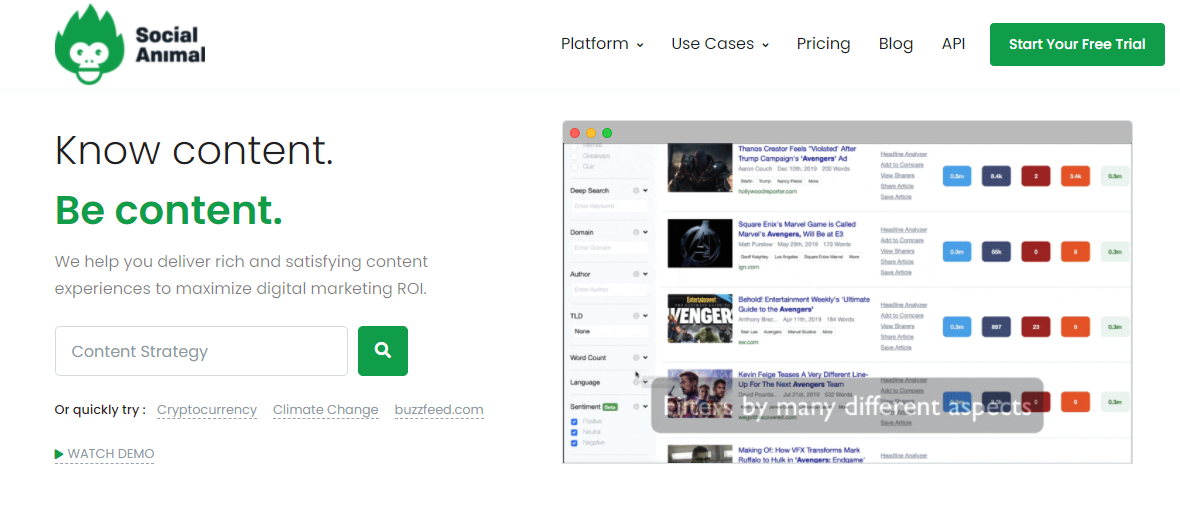What good is having a great product or a service if no one knows about it? Creating something good is just half of the struggle for any business. The other, more delicate part is making people see your creation. You also want to pique their interest in whatever you are offering, which is the role marketing has in modern business.
As with any other profession, a good marketer needs good tools for the job. And while most people would choose a well-known marketing tool for the job, not experimenting can mean you will miss out on some great tools. These might not be the most famous ones, but they have their advantages.
1. Funnel

Funnel is excellent for market analysis. It collects relevant data from all sorts of advertising platforms. You can easily represent, visualize, and send this data. Besides this, Funnel offers real-time analysis of their marketing spending, which is not common among other tools.
Instead of being bogged down with tens of different CSV files that other analytic tools used to map their data, let Funnel do the work for you by accessing data much faster. Instead of wasting time on compiling and reviewing data, put it to more productive and constructive use.
2. Cordial

Our following tool, Cordial, also relies on real-time performance benefits. It is a multi-purpose email marketing and messaging platform that allows you greater personalization. With Cordial, you will tailor genuine, personalized messages for customers on different channels.
Best of all, with this tool, you are covered on all fronts. It enables you to group messages on one platform, such as promotional ones, transactional, and other sorts. Communication is much more manageable that way.
3. Social Animal

The theme of our list so far has been data and analysis. In that spirit, our following tool, Social Animal, provides relevant data and analysis about content. What do we mean by this? For example, Social Animal can give you an insight into the performance history of a given keyword.
This tool is also handy for content writers and content-heavy businesses. Look out for annual search trends and pick the best time to publish an article. See what article lengths are the most popular now and what titles generate the most clicks.
All of this is possible with Social Animal. In addition, you can compare articles and check for keyword overlaps, among other things. If it was not apparent, the primary focus of Social Animal is on keywords. There is an option to search for articles featuring the selected keyword, which is great for researching.
4. Juicer

Finally, let us round up these suggestions with a tool that is not about data but helps you present content. Juicer is a tool for adding social media feeds to your website. If you are someone who relies heavily on social media presence to ensure a successful business, then Juicer is for you.
Before, social media feeds used to look out of place on websites due to the inability to style them to match the look of your site. With this tool, you will not have these issues. You can add a single feed that encompasses all of your social media content. Or, you can filter for specific hashtags. Additionally, Juicer is a lot cheaper when compared to other similar software.
Conclusion
As you can see from this relatively short list, there are many lesser-known tools worth considering. The big, well-known ones try to do many things at once to attract a large user base.
So, even though they are usually great tools in general, they are not specialized for a single task. This is where the other tools shine. Many of them have a single, well-defined purpose, which they fulfill to perfection.